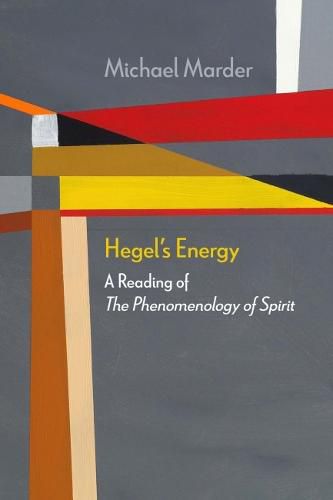Readings Newsletter
Become a Readings Member to make your shopping experience even easier.
Sign in or sign up for free!
You’re not far away from qualifying for FREE standard shipping within Australia
You’ve qualified for FREE standard shipping within Australia
The cart is loading…






Hegel’s The Phenomenology of Spirit has been one of the most important works of philosophy since the nineteenth century, while the question of energy has been crucial to life in the twenty-first century. In this book, Michael Marder integrates the two, narrating a story about the trials and tribulations of energy embedded in Hegel’s dialectics. Through an original interpretation of actuality (Wirklichkeit) as energy in the Hegelian corpus, the book provides an exciting lens for understanding the dialectical project and the energy-starved condition of our contemporaneity. To elaborate this theory, Marder undertakes a meticulous rereading of major parts of the Phenomenology, where the energy deficit of mere consciousness gives way to the energy surplus of self-consciousness and its self-delimitation in the domain of reason. In so doing, he denounces the current understanding of energy as pure potentiality, linking this mindset to pollution, profit-driven economies, and environmental crises. Surprising and deeply engaged with its contemporary implications, this book doesn’t simply illuminate aspects of The Phenomenology of Spirit - it provides an entirely new understanding of Hegel’s ideas.
$9.00 standard shipping within Australia
FREE standard shipping within Australia for orders over $100.00
Express & International shipping calculated at checkout
Hegel’s The Phenomenology of Spirit has been one of the most important works of philosophy since the nineteenth century, while the question of energy has been crucial to life in the twenty-first century. In this book, Michael Marder integrates the two, narrating a story about the trials and tribulations of energy embedded in Hegel’s dialectics. Through an original interpretation of actuality (Wirklichkeit) as energy in the Hegelian corpus, the book provides an exciting lens for understanding the dialectical project and the energy-starved condition of our contemporaneity. To elaborate this theory, Marder undertakes a meticulous rereading of major parts of the Phenomenology, where the energy deficit of mere consciousness gives way to the energy surplus of self-consciousness and its self-delimitation in the domain of reason. In so doing, he denounces the current understanding of energy as pure potentiality, linking this mindset to pollution, profit-driven economies, and environmental crises. Surprising and deeply engaged with its contemporary implications, this book doesn’t simply illuminate aspects of The Phenomenology of Spirit - it provides an entirely new understanding of Hegel’s ideas.